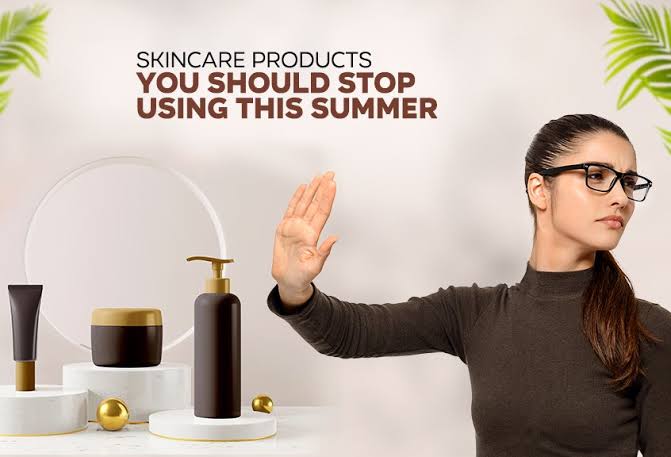Summer is arguably the most exciting time of the year, offering endless fun activities in the sun.
As summer arrives with higher humidity and more intense UV rays, your skin care regimen needs to be modified, to suit the demands of the summer season.
At his best, for example; If deep hydration is necessary in cold, dry climates, over-hydration in hot, humid weather can lead to clogged pores and acne breakouts, so it’s important to know when and how to switch cream types to keep your skin looking radiant and healthy.
Here are 5 skin care ingredients that you should avoid using on summer days:
1. Alpha hydroxy acids and beta hydroxy acids
Alpha hydroxy acids and beta hydroxy acids have long been considered sacred ingredients for those with skin problems. If you have problems with enlarged pores, blackheads and pigmentation, Alpha Hydroxy Acids and Beta Hydroxy Acids, with their rich and exfoliating properties, are your best friend.
The glycolic acid and lactic acid in alpha hydroxy acids can slough away dead skin cells and improve your skin’s texture, while the salicylic acid in beta hydroxy acids can break up clogged pores and deal with sun-related discoloration. But using alpha hydroxy acid and beta hydroxy acid, during the day in the summer, can make your skin sensitive to sun damage, which is why it is recommended to use them in the evening.
2. Retinoids
Vitamin A derivatives, retinoids, have been shown to bring tremendous benefits to your skin, and retinoids can stimulate collagen, treat acne, even out your skin tone, and reduce wrinkles to give you an overall healthy appearance.
Some of the most popular retinoids for acne and photoaging, both over-the-counter and prescription, are retinol, tretinoin, differin (also known as adapalene), and retinol esters.
Although you can use retinoids in your daily skincare routine, it is recommended that you use a topical product at night, and a sunscreen during the day. For maximum effects, the reason is that retinoids themselves are sensitive to UV rays, making them less effective.
3. Aromatic compounds
Aromatic compounds, including natural and synthetic essential oils, should be avoided, as they have the potential to cause rashes and swelling.
Perfume compounds in cosmetics react with UV rays and can lead to severe skin irritation.
4. Citrus essential oils
Using citrus essential oils can wreak havoc on your skin, as lemongrass and bitter orange are citrus oils that contain oxyposidanine, a chemical that causes phototoxicity.
When exposed to harmful UV light, citrus oil is activated which is capable of causing an unwanted skin reaction, which can cause hives, pimples and unwanted pigmentation.
5. Sunscreen oil
If you have oily skin, you should use a lightweight sunscreen, with a matte finish. To wash the face, use water-based, or lightweight “gel”-based cleansers, rather than heavy oil-based formulas.


